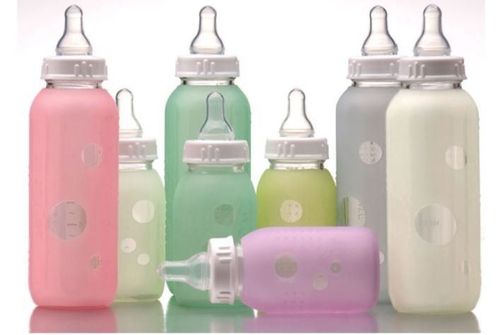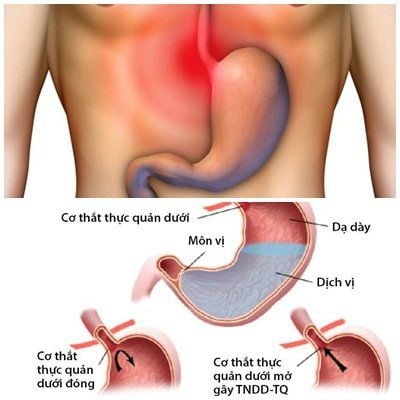This is an automatically translated article.
The article was professionally consulted by Specialist Doctor II Le Thanh Cam - Department of Pediatrics - Neonatology - Vinmec Danang International General Hospital.36 months old is the golden period in the development of children because at this stage, the brain's nerve cells develop at an extremely fast rate. If at the age of 1, the child's brain is only 70% of an adult's, by the age of 3, the child has reached 85%. Therefore, nutrition for a 36-month-old baby is extremely important.
1. Nutrition for 36-month-old children
When children are 36 months old, they have a very large physical growth rate, so they need a varied and nutritious diet to meet the body's needs as well as to avoid malnutrition in children. small.How much does a 3-year-old child eat? Often asked by parents. Because the baby's stomach is still quite immature, the digestive system is still poorly functioning, so it can only absorb a small amount of food. So, instead of giving your baby too much food at one time, you should divide it up into several meals.
Besides, mothers also need to note, although children at this age often have no concept of quantity or nutritious food at all, children only eat when they feel hungry. However, if the mother gives her child foods with a lot of sugar, salt or starch, the child will eat a lot, even more than he needs.
In addition, when caring about nutrition for 36-month-old children, it should be noted that the menu should ensure to provide the following food groups:
About 150-200g of plain rice, however, can be reduced Go rice if you have cooked vermicelli, noodles, pho. About 150-200g of protein-rich foods such as meat, fish, shrimp, divided into 4 meals, each 40g. About 40g fat, divided into 4 meals, each meal 10g = 2 teaspoons. About 150g - 200g green vegetables. About 200g of ripe fruit. About 400 - 500ml of milk. This is the amount of nutrients that should be given to the child. In which:
Starch: 6 servings/day equivalent to 3 cups of rice/day. Fruits and vegetables: 4-5 servings a day (1 serving of greens/fruit equals half a cup of boiled vegetables; 1 banana, 3/4 cup of orange juice; 2 sprigs of broccoli). Protein: 3 servings/day (1 protein portion = 1/2 egg + 50g meat, fish, shrimp; 1/4 cup cooked beans; 4 tablespoons peanut butter). Milk: 4-5 servings/day (1 portion milk (100ml) = 1/2 cup of milk or 1 box of yogurt, 1 piece of cheese 15g).

Thay vì cho con ăn quá nhiều trong một lần, mẹ nên chia nhỏ ra nhiều bữa
Weight at 3 years old baby weighs about 14-14.5kg. At this stage, the baby gains weight slowly, about 100-200g per month. If the baby does not gain weight for 2-3 months in a row, the mother needs to take the baby to a nutritionist for further advice. On the other hand, if your baby is gaining weight rapidly above 500g per month and for many consecutive months, it is important to watch out for the risk of obesity. After 1 year to 4 years old, the baby gains 2kg, ie weighs about 16-16.5kg.
2. Dental care in 36-month-old children
In addition to nutritional issues for 36-month-old children, parents need to pay special attention to dental care for children because teeth directly affect the child's ability to eat. In a 36-month-old child at this time, all the teeth have fully erupted, so it is necessary to pay more attention to dental care for the child.In order to make dental care for children easy and effective, parents should note:
In fact, dental hygiene for children sometimes takes a lot of time, parents can model or change the Brush types, different colors and persistently play brushing games with children. Praise children when they brush their own teeth and get them interested in daily oral hygiene. Using the horizontal brushing technique, fully brush all sides of the upper and lower jaws. It is best to brush the outer surface of both jaws, then the inner surface and finally the chewing surface to avoid omission. The brushing of the baby's teeth needs to be regularly supervised by the parents, when the child is self-aware of brushing, the parents can let the child brush his teeth first, then check again until the baby's brushing is done. effectiveness. Periodic dental examination every 3-4 months to control and prevent dental caries, control teething of children. Regular checkups will help limit your child's dental problems and build healthy dental habits for your child. Parents should get in the habit of recording their child's teething time and dental interventions. This is a very meaningful track record for children's dental problems in the future, helping the dentist to have data to guide future treatment. Detect and eliminate bad habits such as bottle-feeding, lip-sucking, tongue thrusting, mouth-breathing by talking to your dentist during regular dental visits. Apply prophylactic varnish at medical facilities every 6 months for children at risk of tooth decay.

Cha mẹ cần loại bỏ thói quen xấu như bú bình, mút môi,... của trẻ 36 tháng tuổi
When the child has health abnormalities, parents can take the child to Vinmec Health system for timely examination and treatment.
In addition, parents should also apply some methods of changing habits and improving nutrition to support the child's teeth to develop better.
Besides, parents also need to supplement their children with essential micro-minerals such as zinc, lysine, chromium, selenium, vitamin B1, ... to fully meet the nutritional needs of children. The addition of these essential vitamins also supports digestion, enhances nutrient absorption, improves anorexia, and helps children eat well. Parents can simultaneously apply dietary supplements and functional foods derived from nature for easy absorption. The most important thing is that improving your baby's symptoms often takes a long time. Combining many types of functional foods at the same time or changing many types in a short time can make the baby's digestive system unable to adapt and completely not good. Therefore, parents must be really patient with their children and regularly visit the website vimec.com to update useful baby care information.














